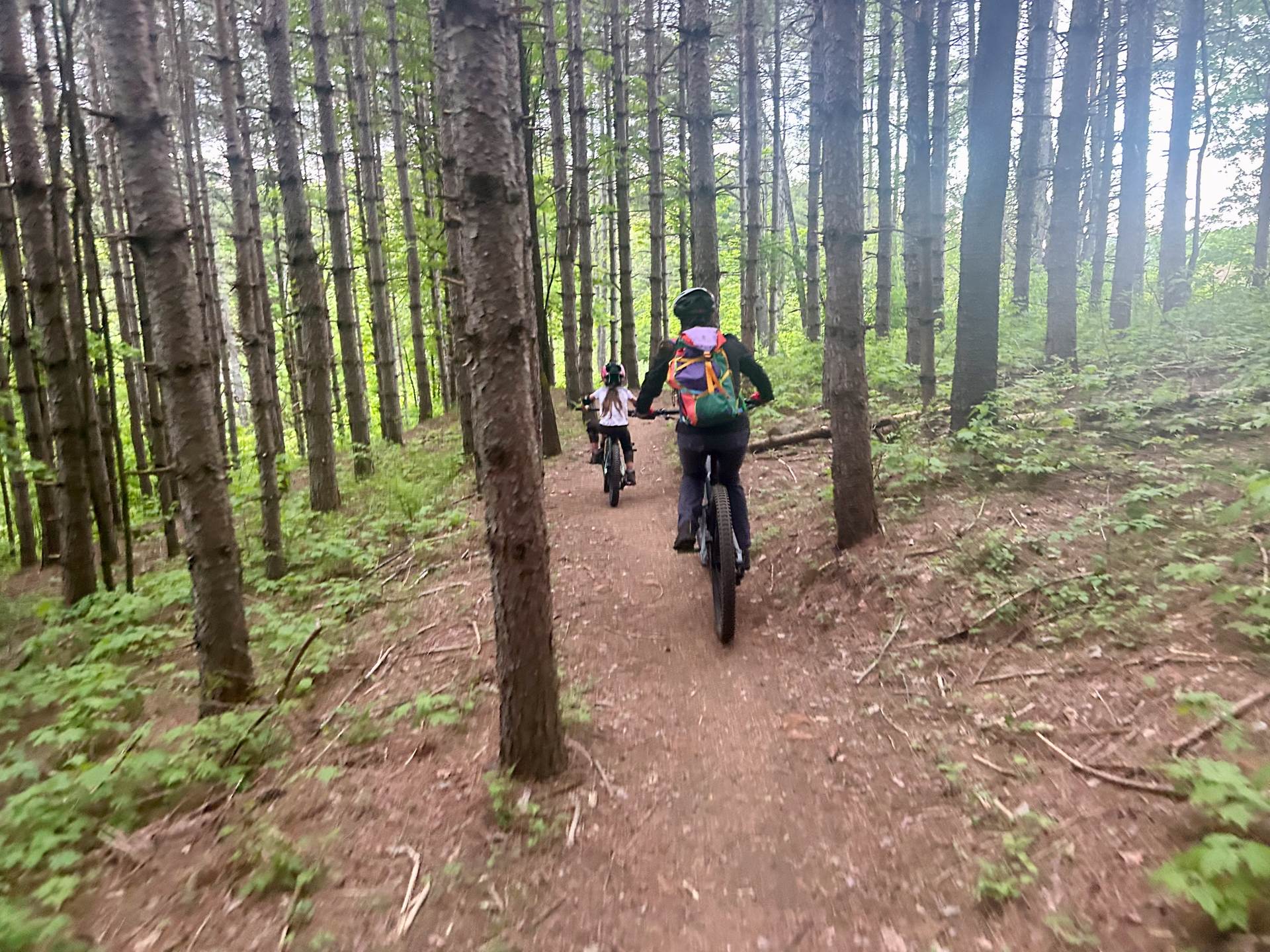A coalition of outdoor recreation organizations led by the Vermont Trails and Greenways Council (VTGC), issued a statement Nov. 18 urging the Vermont Supreme Court to carefully consider the long-term implications of its upcoming ruling regarding the maintenance of public access trails on private land.
The case, which involves the use of a “legal trail” maintained by the town that crosses private property in Tunbridge, has the potential to reshape public access rights throughout the state, with significant consequences for recreationists, landowners, residents, and municipalities.
The issue at hand centers on whether municipalities can continue to maintain and improve what were previously public roads and what have become public access trails that cross private property. The coalition acknowledges and respects the rights of private landowners, and believes it is crucial that any ruling takes into account the need for a balanced approach.
When trail stewardship organizations approach a landowner regarding the construction of a new public access trail, they wholly recognize that the decision as to whether or not to allow for such a trail, as well as what uses are permitted, is entirely up to the landowner. In cases where an existing public right-of-way that provides recreational access crosses a property, however, the coalition strongly feels landowners should not be able to assume control of what is an existing public asset and that management should remain with the existing public entity.
Outdoor recreation is a cornerstone of Vermont’s economy.
In 2022 alone, outdoor recreation generated over $1.9 billion in consumer spending and supported over 30,000 jobs across the state. Legal trails, which are not only integral to experiencing the state’s natural landscapes but also critical for economic activity tied to outdoor tourism, recreation-based businesses, and local communities’ connectivity to each other, are now at risk.
The right to maintain and improve these trails has long been a collaborative effort between landowners, volunteers, and outdoor organizations, with respect to private property rights and environmental stewardship and with the local municipality leading the charge. If the court rules in favor of the complainants, Select Boards, and the outdoor organizations that help these Select Boards maintain these trails, will lose the authority to manage the physical state of their legal trails.
Such a ruling could have an immense impact on the public access for the majority of Vermont’s municipalities, as there are currently 547 miles of legal trails in Vermont. If landowners can simply choose to manage — or not manage — them it could prohibit all use or certain types of outdoor recreation uses.
The coalition urges the Vermont Supreme Court to consider the broader implications of this case, including the critical role that legal trails play in the state’s economy, environment, and community health. Furthermore, we encourage lawmakers, landowners, and outdoor recreation groups to come together to explore new ways to ensure that Vermont’s trail network remains accessible for future generations.
With this objective in mind, the VTGC is currently advocating for legislation that will take the necessary first steps to establish a program that recognizes landowners who provide public access to recreation on their property with tangible benefits that encourage them to maintain that access.
The coalition stands united in a commitment to preserving Vermont’s long standing ethos of allowing public access to private land for outdoor recreation and to ensuring that public access to outdoor spaces remains protected. Public access trails are vital to Vermont’s outdoor economy, health, and well-being, providing residents and visitors alike with a chance to enjoy the natural beauty of our state.
Trails serve as critical connections to our communities, schools, and local businesses, contributing to the social, cultural, and economic vitality of Vermont.
For more information, visit: vermonttgc.org.




